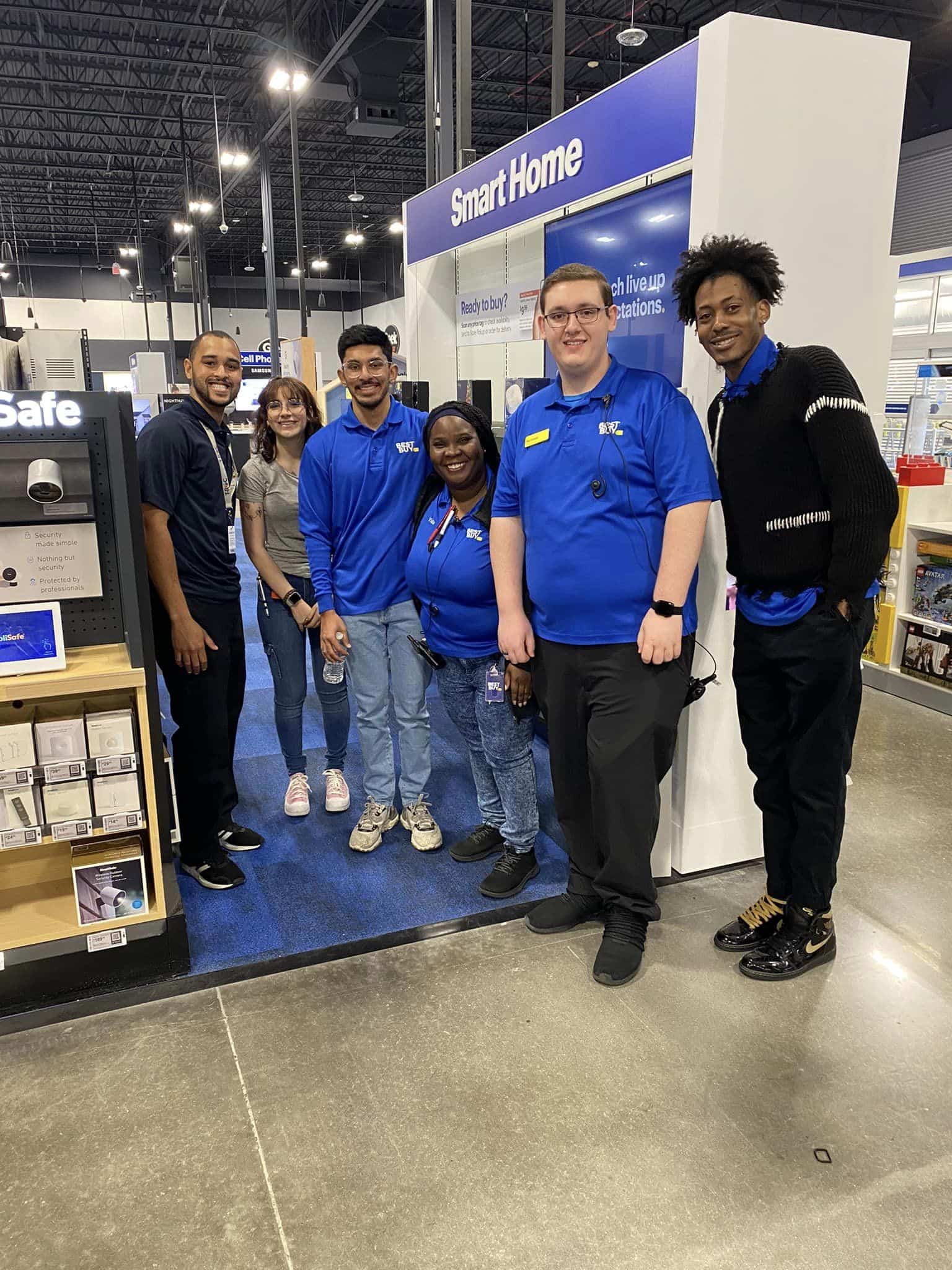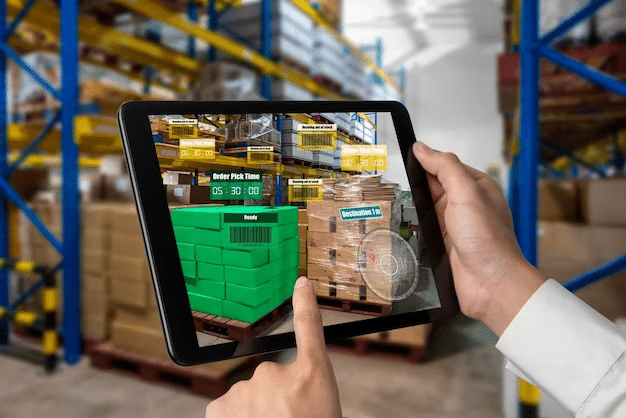
8 Different Types of Brand Ambassadors
Cultivating a lasting relationship with retailers is essential for the enduring success of your retail brand. Print and digital communications can only do so much to educate store management and ensure that products are displayed properly.
When it comes to promoting your products and advocating your brand, there’s no substitute for in-person interaction and the human touch.
That’s where brand ambassadors come in.
Brand ambassadors can share their brand knowledge and, most importantly, their passion and enthusiasm with retailers, building relationships and driving sales. Unlike impersonal brand promotion conducted over the phone or email, an in-person brand ambassador can humanize your brand experience and optimize the positioning of products in-store.
But brand ambassadors don’t just come in a one-size-fits-all. Let’s take a look at the different types of brand ambassadors and how they can help retail businesses.
Interested in brand ambassadors for your business? Get in touch with us today
What Exactly Is a Brand Ambassador?
A brand ambassador is a representative of a particular company or organization who promotes its products, services, or offers and acts on behalf of the brand to increase awareness and drive sales. In other words, a brand ambassador is the face of a brand.
Also known as brand advocates, brand ambassadors are enthusiasts and experts who are knowledgeable about the advantages of their brand, product, or service. In the retail space, brand ambassadors are also responsible for ensuring that products are merchandised correctly – they are positioned where they should be, promotional materials are displayed, compliance is followed, and inventory on store shelves is well-organized and appealing to customers.
While brand ambassadors have been traditionally associated with glitzy celebrities, ambassadors don’t need a standard set of qualifications. They can be anyone from company employees to online influencers. Brand ambassadors can work in either a customer-facing role (B2C) or can promote their brand to other companies (B2B).
8 Different Types of Brand Ambassadors
Although their roles and general responsibilities may be similar, there are many different types of brand ambassadors. No matter what specific type of ambassador they are, every brand ambassador shares the goal of driving sales and bringing awareness to the products or services they promote.
1. Peer Advocate Ambassador
A peer advocate ambassador is an existing customer who shares their excitement for a product or service with others who share their interest and passion.Everyday consumers trust word-of-mouth recommendations when making a purchase decision, and recommendations from peers areone of the most influential factors in purchase. Peer advocate ambassadors are great at relating to sales leads and prospective customers since they can share similar challenges and experiences.
Some typical strategies used by peer advocate ambassadors include:
- Posting a recipe blog featuring a new barbecue sauce
- Sharing a play-through of the latest hit video game on social media
- Recording a makeup tutorial using a trendy foundation
2. Student Brand Ambassador
Student brand ambassadors also fall under the umbrella of peer advocate ambassadors since they usually target other college-age students as part of their student ambassador program. For brands that value the 18-25-year-old demographic, investing in college ambassador programs is essential as these years are critical in creating lifelong habits beyond college.
College ambassadors can leverage their existing campus relationships to raise awareness of their brand among fellow students. They’re also more inclined to promote their brands in creative and unexpected ways.
Some ways that student ambassadors reach their audience include:
- Wearing branded apparel around campus
- Giving out free samples or swag at school events
- Promoting new products through social media posts
- Making sure stores around campus have your product
3. Niche Authority Brand Ambassador
Niche authority ambassadors are experts in their field. They have a deeper, more robust understanding of products or services than most other types of brand ambassadors and can readily share their knowledge to educate businesses or customers.
These ambassadors often come from careers in a niche industry or have established expertise by running a successful blog or social media account in their niche. They usually promote an established commercial brand but may also represent their personal brand, in the case of a celebrity chef or athlete.
Examples of niche authority brand ambassadors include:
- A professional golfer who exclusively uses a particular brand of golf ball
- A coffee expert who promotes a monthly coffee subscription service
- A dentist who shares content featuring a new retail water flosser
4. Experiential or Event Ambassador
Event ambassadors are great at creating one-on-one connections with potential customers. They represent brands at live events like concerts, college football games, or in-store demonstrations for products in the food and beverage industry, etc. This type of ambassador can leave a lasting impression with a face-to-face interaction, though they may also use social media to connect with their audience.
You might find an experiential or event ambassador:
- Giving free samples of an energy drink at an outdoor concert
- Mixing drinks at a liquor store product demonstration
- Handing out swag at a festival or holiday event
5. Formal Ambassador
A formal ambassador is any individual who has entered into a formal agreement to represent a brand. They are typically members of a dedicated ambassador program and are provided with special information about a brand and its goals in return for agreeing to abide by certain brand standards.
Formal ambassadors usually follow specific guidelines when representing their brand. When joining an ambassador program, they may agree to create a certain amount of branded content per month, appear at a certain number of events, and so on. As an official position, formal ambassadors are generally required to sign an exclusive contract with the company they represent.
6. Informal Ambassador
An informal ambassador usually has more enthusiasm than expertise about a particular product or service. An informal ambassador program is similar to a referral or affiliate program, relying on informal brand ambassadors to share promotional codes or links with their online followers. Because of this, some informal ambassadors may also be called affiliate ambassadors. Once a promotional code is used to make a purchase by one of their followers, affiliate ambassadors receive a reward.
Some common rewards for informal ambassadors include:
- Commission
- Discount coupons
- Earned credits
7. Enthusiast Ambassador
Enthusiasm is important for every type of brand ambassador. But unlike other types of ambassadors, enthusiast ambassadors are existing customers who are willing to promote brands for little or no compensation. In fact, they may even promote a product or service without being asked. While they aren’t acting as a formal representative of a brand, these customer ambassadors are great candidates for potential brand ambassadors in the future.
Ways that enthusiast ambassadors promote brands include:
- Leaving stellar reviews on shopping sites
- Sharing branded content on social media
- Gushing to friends about a brand’s products or services
8. Employee-Ambassador
Some of the best brand ambassadors are already working for the brands they promote. Current employees can make great ambassadors for their brand. They already have a expertise and experience on the way their products or services work, as well as an understanding of brand goals and the preferences of their target audience.
But it’s important to make sure that the expertise from an employee’s existing role doesn’t conflict with their role as a brand ambassador. If employees are too deeply familiar with their brand’s marketing language, promotions can feel scripted or artificial instead of spontaneous and authentic.
3 Ways Brand Ambassadors Can Elevate Your Experiential Marketing Campaigns
The power of a face-to-face interaction shouldn’t be underestimated in a brand’s marketing channels. Brand ambassadors are an incredibly powerful tool in your marketing arsenal that can leapfrog the hurdles of print and digital advertising.
Not to mention, brand ambassadors are an indispensable asset for retail brands wanting to ensure their products are being properly featured and merchandised on store shelves.
Consider just a few of the ways that brand ambassadors can elevate your experiential or event marketing campaigns.
1. Brand Ambassadors Humanize Your Brand
Today’s retail managers receive countless emails and phone calls promoting new products. A real live brand ambassador cuts through the din of digital product promotion by establishing a human connection. This is especially true and powerful for very complex or high-value items.
When a brand ambassador builds a relationship with a retail store, they share their contagious excitement and help to create energy around the product they promote. They can put a human face to a brand and ensure that their product is top of mind when store employees make recommendations to customers.
2. They Create Meaningful Connections With Prospects
Brand ambassadors can leave a lasting impression on prospects and foster brand loyalty. Even if they don’t necessarily make a sale, simply having a real conversation with a prospective customer can greatly affect that prospect’s opinion of a brand. If prospects have a good experience with a brand ambassador, they are more likely to remember the positive feelings associated with that interaction whenever they interact with those particular products or services.
3. They Increase the Brand’s Reach And Visibility
Today, digital marketing gets all the hype when it comes to brand visibility. It can seem like much of the emphasis is placed on social media engagement, email open rates, and website visitors.
But the simple act of sending a human being to represent a brand can be more powerful than you might think. Brand ambassadors increase visibility by ensuring that store displays are in the best position to attract customers. By establishing a lasting relationship with retailers, brand ambassadors can continually monitor the status of their in-store products to reach a wider audience.
Conclusion: Types of Brand Ambassadors
Brand ambassadors are fundamental to the success of virtually any modern brand, especially in the retail space.
There’s no denying the power of digital communications and online marketing campaigns, but an enthusiastic brand ambassador makes immediate human connections that just aren’t possible through other marketing strategies.
There are many types of brand ambassadors, and the right ambassador for a particular brand depends on the nature of their products or services, their target demographics, and their overall sales and marketing goals. Whether it’s niche ambassadors with deep product knowledge or customer ambassadors promoting a brand pro bono, a great brand ambassador can boost brand awareness and drive sales.
Get Results with T-ROC’s Brand Ambassador Program
At T-ROC, we’ve perfected our brand ambassador program with over 20 years of retail success. We know that your brand deserves someone who’s enthusiastic, passionate, and knowledgeable to promote your products.But you may not have the resources to hire and train your own brand ambassadors. With the help of T-ROC’s brand ambassador program, you can enjoy a host of benefits in your brand ambassador marketing efforts.
- Better talent
We recruit only the best talent to represent your retail brand. Our team uses cutting-edge recruitment technology to match clients with outstanding candidates for their brand. Our advanced screening software selects only the best candidates based on your brand’s specific needs. - Better relationships
T-ROC’s brand ambassadors build lasting relationships with store management and employees for enduring brand success. - Better people management
The experts at T-ROC have over two decades of experience in managing brand ambassadors, eliminating any guesswork when it comes to roles and responsibilities. We even optimize the amount of time each ambassador spends at a particular store so they can cover more territory. - Better technology
Using our proprietary technology, we’ll provide real-time data to give you insights into the location of your ambassadors and all their activities. - Greater peace of mind
We’ll ensure that every product merchandising is compliant, well maintained,and is placed in the best locations. T-ROCs Brand ambassadors even provide you with real-time updates including photos of your product displays in every store.
FAQs
What are the different types of brand ambassadors?
There are many different types of brand ambassadors including peer advocates, student ambassadors, niche authorities, event ambassadors, and formal ambassadors, among others.
What is another name for a brand ambassador?
Brand ambassadors may also be referred to as brand advocates, corporate ambassadors, or product ambassadors. In some cases, they may also be called a spokesperson or product demonstrator.
What are 3 attributes of a successful brand ambassador?
A successful ambassador for a brand should have a basic understanding of marketing, be able to maintain professionalism on the job, and demonstrate authentic excitement for the brand they represent.









